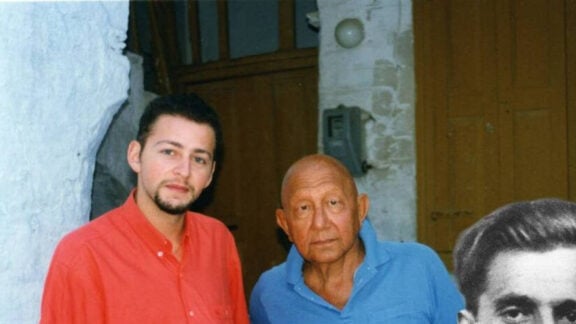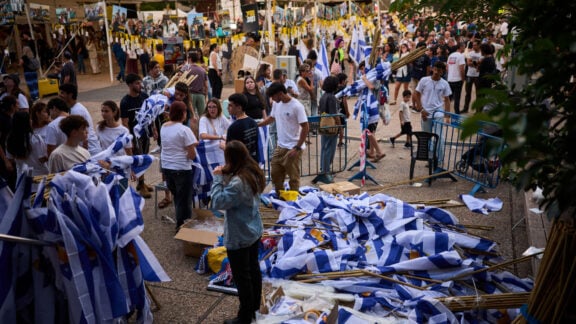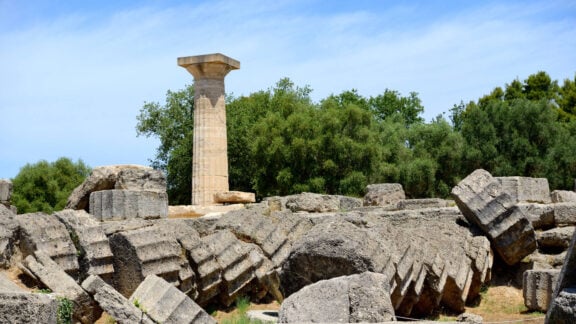The Greek Centre just hosted Who’s Afraid of Khaled Sabsabi? Art, Fear, and the Collapse of Institutional Courage—a forum that addressed the recent controversy surrounding Lebanese-Australian visual artist from Western Sydney, Khaled Sabsabi and his unceremonious dumping as the Australian representative in the prestigious 2026 Venice Biennale.
The decision to remove Sabsabi by the government’s arts council Creative Australia was at best handled like an episode of the ABC’s Utopia. The move followed criticism firstly from Coalition politicians and some media, and Jewish community members of Sabsabi’s 2007 multimedia work You.
As the MCA’s descriptor writes You is a “multi-channel video and sound installation”.

“…(T)he viewer enters a space in which the image of Hassan Nasrallah (1960–2024), then leader of the Lebanese paramilitary and political organisation Hezbollah, is multiplied progressively across the walls to become a mosaic of images that immerse to the point of saturation.”
Hezbollah, a hardline theocratic terror organisation, has been responsible for numerous terror acts such June 1985 hijacking of TWA flight 847 to Beirut, numerous suicide truck and car bombings, and the launch of thousands of Russian and Iranian rockets into Israel. Nasrallah, was recently made “former” leader of Hezbollah, in an Israeli Defence Forces (IDF) targeted operation.
Hezbollah, described by the MCA as “Lebanese paramilitary and political organisation Hezbollah” has been designated as a terrorist organisation by most western governments for over 40 years.
The MCA has now removed that work from display.
Shortly after the decision to remove Sabsabi from the Biennale, Monash University also postponed a planned exhibition that included his work Flat Earth, which was originally scheduled to open in May 2025.

Cultural theorist and Neos Kosmos contributor Nikos Papastergiadis, who has written on the controversy, introduced the panel of speakers. Papastergiadis, took aim at the role of the institution, and the process.
In his introduction, Papastergiadis highlighted concerns over transparency and accountability in institutional decision-making. He questioned whether the actions taken against Sabsabi were the result of genuine consultation, or reactive responses to political pressure. Emphasising the value of public dialogue and peer-reviewed processes, he drew parallels between democratic principles and the governance of cultural institutions.
Over 800 people were on the waitlist for the event, a clear the arts and cultural and academic community is interest. A video recording of the forum is in preparation to ensure broader access.

The panel brought together prominent, mainly left-wing, activist voices from the arts, academia, and cultural institutions, that included:
Louise Adler – Arts board member and cultural leader
Anthony Gardner – Art historian, 2025 Dobell Chair in Art History at ANU, and advisor to the Venice Biennale Australian Pavilion
Ghassan Hage – Professor of anthropology and author of The Racial Politics of Australian Multiculturalism
Josh Milani – Director of Milani Gallery, representing Khaled Sabsabi
Azza Zein – Interdisciplinary artist and writer
Moderated by: Memo editors Helen Hughes and Paris Lettau









